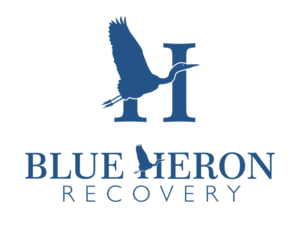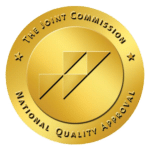Watching a loved one struggle with addiction can be incredibly painful and overwhelming. You want to help, but it can be hard to know how to approach the situation. The truth is, when it comes to addiction, time is of the essence. Delaying treatment can worsen the situation, and the longer your loved one goes without help, the more difficult recovery can become. Seeking rehab today can make all the difference in their journey toward sobriety and a healthier future.
Recognizing the Signs of Addiction
One of the first steps in helping your loved one is recognizing the signs of addiction. While the specific signs can vary depending on the substance being used, there are some common indicators that suggest your loved one may need to seek rehab today:
- Behavioral changes: Sudden mood swings, irritability, or isolation from family and friends.
- Neglecting responsibilities: Ignoring work, school, or family obligations.
- Physical changes: Noticeable weight loss or gain, poor hygiene, and changes in sleep patterns.
- Financial problems: Unexplained spending, borrowing money frequently, or missing bills.
- Legal issues: Trouble with the law due to substance use, such as DUIs or arrests.
If you’ve noticed these signs in your loved one, it’s crucial to act quickly. Delaying treatment can lead to further physical and emotional damage, putting your loved one at greater risk. Seeking rehab today gives them the best chance of starting their recovery sooner rather than later.
Approaching the Conversation
Having a conversation about addiction is never easy, but it’s a critical step in getting your loved one the help they need. Here are a few tips to help you approach this tough conversation in a way that’s open and non-confrontational:
- Pick the right moment: Choose a time when your loved one is sober and calm. Trying to talk when they’re under the influence or in a bad mood is likely to lead to defensiveness or anger.
- Express concern, not judgment: Using “I” statements helps focus on how their behavior impacts you without making them feel blamed or ashamed. For instance, saying, “I’m really concerned about how much you’ve been drinking lately,” is much more effective than accusing them with, “You’re ruining your life with alcohol.”
- Stay calm and patient: Addiction is a sensitive topic, and your loved one may not react well at first. Be prepared for resistance or denial, but try to remain calm and supportive.
Your goal is to help your loved one feel safe and understood rather than judged or attacked. If they feel defensive, they may shut down and refuse help. Keep the focus on your concern for their well-being and your desire to see them get better by going to rehab today.

Explaining the Benefits of Rehab Today
One of the most important parts of this conversation is explaining why immediate action is necessary. Waiting to seek treatment can have serious consequences. Addiction can quickly take over, leading to serious health problems, damaged relationships, and even issues with the law.
Here are a few reasons why seeking rehab today is essential:
- Better chance for recovery: The earlier someone begins treatment, the better their chances are of staying sober for the long haul.
- Prevent further damage: Addiction takes a toll on both the body and the mind. Getting help now can prevent irreversible physical and mental health issues.
- Rebuild relationships: Addiction often strains or damages relationships with family and friends. Seeking treatment now can help repair these bonds and provide a fresh start.
Let your loved one know that seeking rehab today could change their life for the better. It’s not just about stopping substance use; it’s about giving them the opportunity to live a healthier, happier life.
Intervention Strategies
If your loved one refuses to get help, an intervention may be the next step. Interventions involve gathering family members, friends, or even a professional interventionist to confront the person in a structured way about their addiction and the need for treatment.
Here’s how to organize a successful intervention:
- Plan ahead: Make sure everyone involved is on the same page and has a clear understanding of what they will say.
- Involve a professional: Hiring an intervention specialist can help guide the conversation and ensure it remains constructive.
- Stay focused on solutions: The goal of the intervention is to encourage your loved one to enter rehab today. Stay focused on the benefits of treatment and avoid getting caught up in past mistakes.
While interventions can be emotionally charged, they are often effective in helping individuals realize the seriousness of their situation and agree to seek help immediately.
Providing Support and Resources
Once your loved one agrees to seek treatment, they will need both emotional and practical support. Here’s how you can help:
- Offer encouragement: Let your loved one know you’re proud of them for taking this step and that you’ll be there to support them throughout their recovery.
- Research rehab centers: Help your loved one find a rehab center that fits their needs. You can research local options, like Blue Heron Recovery, that offer tailored programs for their addiction type.
- Prepare for logistics: Assist with the details, such as scheduling their intake, packing for their stay, and arranging transportation.
Providing this kind of support can ease the transition into treatment and show your loved one that they’re not facing this alone.
Next Steps: Getting Them Into Rehab Today
Now that your loved one is ready to enter treatment, the next step is finding a rehab today center that can meet their needs. Here’s what you can do to help:
- Research options: Look for rehab centers that specialize in the type of addiction your loved one is struggling with. Consider factors like location, treatment programs, and aftercare options.
- Handle admissions: Reach out to the rehab center to understand their admissions process. Many rehab facilities can arrange same-day admissions to ensure your loved one gets help right away.
- Prepare for resistance: Even after agreeing to treatment, your loved one may have second thoughts. Be ready to offer reassurance and remind them of why they’ve decided to seek rehab today.
Contact Our Team Today
Helping a loved one enter rehab today can be a challenging and emotional journey, but it’s one of the most important steps you can take to support their recovery. By recognizing the signs of addiction, having a compassionate conversation, and offering support, you can encourage them to seek the help they need.
If you’re unsure where to start, contact our team today at Blue Heron Recovery at (210) 588-0508 to schedule a consultation and learn more about our services. Recovery is possible, and you don’t have to navigate this process alone.





